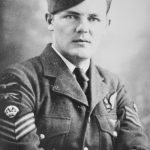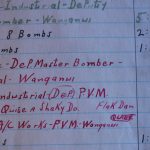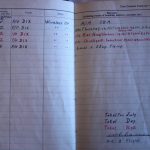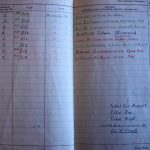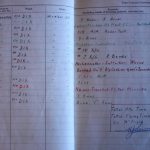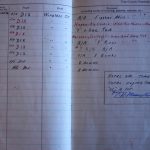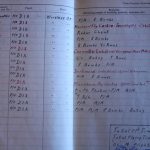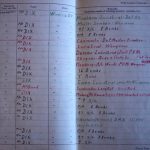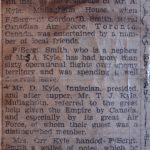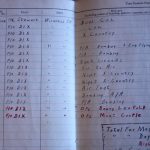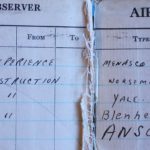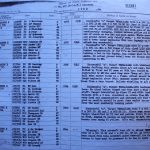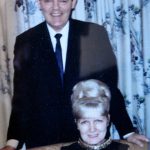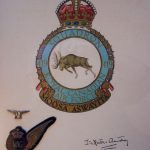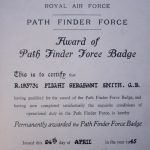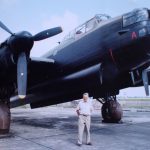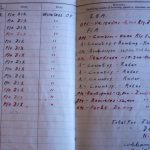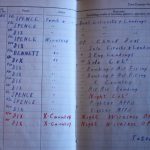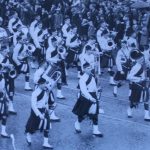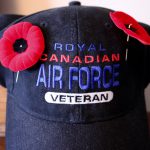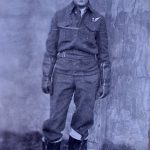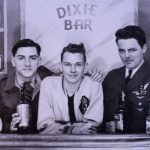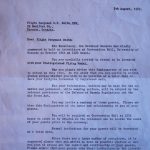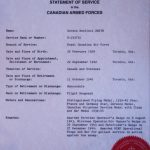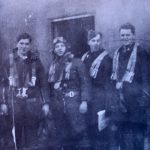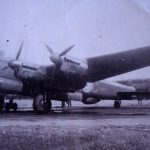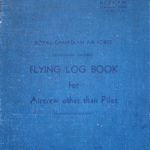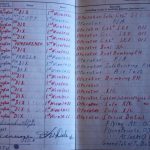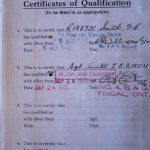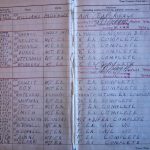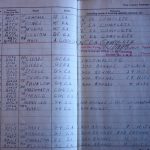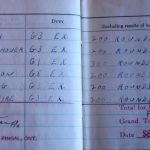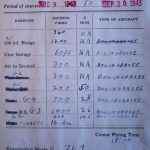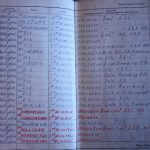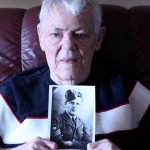Gordon B. Smith was born in the east end of Toronto, not far from the Don Jail. He lost one brother when he was growing up in that neighbourhood, to a household accident. Gord attended Eastern Commerce, but he didn’t graduate, instead entering the work force. When the war came, Gord’s remaining older brother enlisted in the RCAF, where he became a pilot instructor in the BCATP. He got his chance to go overseas at the midpoint of the war, just as Gord turned 18; he became a pilot in Bomber Command. Gord joined up in his own right as soon as he was able; he was trained for about a year, doing gunnery training, and communications training, so he was designated a Wireless Air Gunner. The very day that Gord would graduate from his own training in the RCAF, the family received the news that Gord’s brother had been killed on a mission; Gord remembers this as a very bittersweet occasion for the family. Not long after, Gord was making his way down east, expecting to board a troop ship in Halifax; instead their train headed down to New York City, where they boarded the Queen Mary. An eventful journey followed, and soon the men were in Britain, ready to make their mark on the war. Gord and the other men crewed up, and he was assigned to Squadron 419 – the Moose Squadron. Gord and his crewmates began flying missions, attacking targets in Nazi-occupied Europe, from coastal installations to industrial targets in the heart of the Ruhr valley. They were accurate, prompting the RAF to take notice; a promotion to the elite Pathfinders followed. Working in the two areas Gord accumulated a total of 59 flying operations, virtually doubling the required 30 and earning the DFM. Gord was interviewed for this project in his home in Orangeville in January 2018, by Scott Masters and Eric Brunt.
Videos
Click next video below to keep watching
